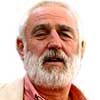Two years ago I hoped that I would never have to think even of the possibility of Scioli becoming president, kept on a leash held by herself, Cruella de La Plata. Can you imagine the atmosphere? He would perhaps go on national TV and radio, with her permission, to advocate democracy on his terms, which might even mean a free offer of a season ticket in his football fields on the river Luján. Some might think that really would be democracy… Then again, for those not in agreement, we could be sent to Angola for lessons on how to become successful lawyers. That said, this page should also steer clear of thoughts about a golden future of millionaires or of buying a post office or two somewhere on the smallest Caribbean islands. But how much do we think this relates to democracy?
As things are now there are elements to help journalists, ‘us,’ pretend to look into the future and from there ‘we’ – radio and TV presenters on a first name basis with ministers and heads of governments, for example – can guess what might happen next.
In fact, most of us in the media brigade are looking back to see if there might be traceable signals to help us pretend we are looking ahead to see if something is about to happen. That involves continuing to look back and is an exercise that many in the media call freedom of the press, in democracy. Oh, yeah…
This interesting exercise about looking back, which is not advisable for too long but becomes necessary at times to avoid repetition of the characters we have seen, does have keynote characters in the present. We are seeing a former president with a selection of friends who are suspected of emptying the Treasury and yet nobody out there who has voted for her several times feels she is in any way guilty of anything. This unconditional support for the woman, on the grounds that she led a “national and popular” administration, is expressed by people with a high standard of education who feel her government was democratic and for the people. Is that democracy?
Meanwhile, Mrs Cristina Fernández de Kirchner is her own worst enemy. She claimed credit for creating a new party that secured 3.8 million votes last Sunday but none of her supporters, intellectuals and the educated, learned and well read, were able to make sure she knew she was her own worst enemy. There she was, unable to greet her rivals, or congratulate them in their success and leave the scene untarnished. She claimed that “she is the people.” Is that what a large swathe of educated Argentines still believe to be democracy? It’s hard to explain democracy, isn’t it? And we can’t only query Cruella del Pueblo. Does democracy admit the idea that only an elected government can reach out and steep the country in debt for 100 years in the name of a liberal management? Surely that is not democracy, even if the president feels that it is. Or maybe it really is? After all, the democracy that politicians are happy to quote from in ancient Greece establishes the need for senior classes of men, the need for servant classes, and the undeniable (though such words were not used in establishing a society with a range of declining ranks) need for obedience to the former, among many other strict orders. Sounds more like an ordinary foot army than a democracy… Then again, just as democracy has become a cliché in the mouths of fools, so has the concept of Utopia (1516).
Thomas More (1478-1535) intended his book to be staged on a fictional island where religious, political and social orders were firmly and clearly set, but authorised to move freely in the territory of the better class of members of the community. It is a work of fiction and political satire with a name that apparently and literally means, we are told, “nowhere”. It was later generations that developed the idea and turned the name into a concept of a free society with little or no rules in which all those taking part had a chance to live with no restrictions.
And so utopia, looming large on the top shelf of unclear theories, unhappily applied in fantasies, leads to the question why words such as democracy are used when many in politics are reluctant to help followers to understand what the word means in the first place. Keeping things secret from the wandering citizens of reduced power might be what is understood to be democracy.





















Comments